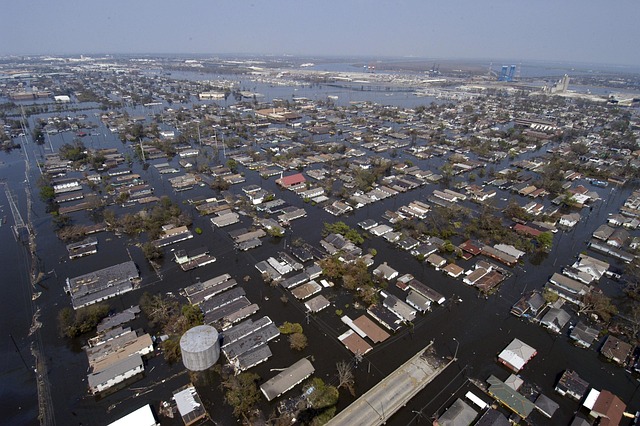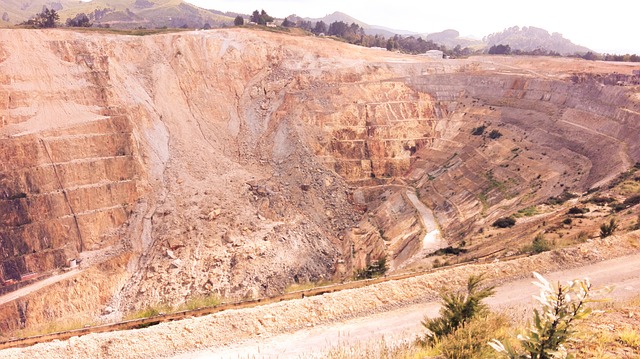Denver's data center landscape, with its colocation facilities and enterprise centers, is a hub for major players. Disaster Recovery Services Denver offer tailored solutions from backup to recovery testing. In the digital era, businesses rely on these services to protect data and ensure continuous operations against cyber threats, natural disasters, human errors, and environmental challenges like mold removal. Regular risk assessments, tested recovery plans, and automation are best practices. A robust disaster recovery strategy ensures business continuity, boosts efficiency, and builds customer trust in a competitive market. In incidents like cyberattacks or natural disasters, a well-rehearsed plan with clear roles, communication protocols, and backup procedures is vital for quick recovery.
In the dynamic world of data management, Denver’s data center landscape is a hub of technological innovation. As businesses rely increasingly on digital infrastructure, ensuring robust disaster recovery becomes paramount. This article explores the best value disaster recovery services in Denver, delving into understanding the local market, assessing risk, and implementing effective backup strategies. We provide a comprehensive guide to restoring operations, empowering businesses with essential tools for uninterrupted growth amidst challenges. Discover how top-tier data center recovery solutions can safeguard your critical assets.
- Understanding Denver's Data Center Landscape
- The Role of Disaster Recovery Services
- Assessing Risk and Business Continuity
- Best Practices for Data Backup Strategies
- Restoring Operations: A Step-by-Step Guide
Understanding Denver's Data Center Landscape

Denver’s data center landscape is a dynamic and ever-evolving environment, home to numerous businesses and organizations that rely heavily on reliable and secure technology infrastructure. With its strategic location and robust connectivity options, Denver has emerged as a key hub for data centers, attracting major players in the industry. Understanding this complex ecosystem is crucial when considering Disaster Recovery Services Denver. The city’s diverse range of data centers, from large-scale colocation facilities to specialized enterprise centers, presents both opportunities and challenges for businesses aiming to ensure their operations’ resilience.
When it comes to disaster recovery consulting Denver, experts recommend a tailored approach due to the unique characteristics of each facility and organization. Commercial Restoration Denver plays a vital role in this process, offering services that span from backup solutions and data replication to comprehensive disaster recovery planning and testing. By evaluating the current state of data center operations, professionals can identify weaknesses and implement robust strategies to safeguard against potential disruptions, ensuring business continuity and minimizing downtime.
The Role of Disaster Recovery Services

In the dynamic landscape of business operations, where data is the lifeblood of any organization, ensuring its protection and quick recovery in case of unforeseen disasters is paramount. This is where Disaster Recovery Services Denver step into the spotlight. These specialized services are designed to safeguard critical information, enabling businesses to continue operations with minimal disruption during challenging times. By implementing robust strategies, from offsite data storage facilities Denver to sophisticated backup protocols, companies can mitigate risks associated with cyber threats, natural calamities, or human errors.
Disaster Recovery Services go beyond simply recovering data; they encompass a comprehensive approach to business continuity. This includes swift incident response, effective communication plans, and efficient recovery processes. For instance, while services like Crime Scene Cleanup Denver and Sewage Cleanup Denver might not be directly related to data recovery, they play an indirect yet crucial role in maintaining a safe and secure environment, which is essential for effective disaster recovery operations.
Assessing Risk and Business Continuity

In the ever-evolving digital landscape, Assessing Risk and Business Continuity is paramount for any organization, especially in cities like Denver where reliable data center operations are non-negotiable. The first step in this process involves identifying potential threats such as natural disasters, cyber attacks, or equipment failures that could disrupt critical IT systems. By evaluating these risks, businesses can implement tailored strategies to ensure minimal downtime and data loss during emergencies. Disaster Recovery Services Denver provide a safety net through comprehensive planning, including backup power solutions, off-site data storage, and advanced cybersecurity measures to safeguard against threats like mold growth (a common post-disaster issue) that could compromise hardware.
The best practices for DRaaS (Disaster Recovery as a Service) involve regular risk assessments, testing of recovery plans, and continuous updates to keep up with evolving cyber security disaster recovery challenges. A robust DR strategy not only ensures business continuity but also enhances operational efficiency and customer trust. Effective assessment methods help organizations prioritize resources, ensuring that their data centers are equipped to withstand potential disruptions, ultimately maintaining productivity and competitiveness in the dynamic market of today.
Best Practices for Data Backup Strategies

In the competitive landscape of Denver data centers, establishing robust data backup strategies is paramount for any business aiming for seamless operations and minimal downtime in case of unforeseen events. The first step involves identifying critical data and applications that require immediate recovery. This process includes regular assessments to ensure every piece of vital information is accounted for and protected. Implementing a hybrid approach, combining on-premises storage with cloud disaster recovery benefits, offers the best of both worlds: local accessibility and robust redundancy.
Moreover, data backup and recovery services in Denver should incorporate automated processes to mitigate human error and ensure timely restoration. Regular testing of these strategies, including full-scale simulations, is essential to validate their effectiveness. In the event of physical damage or mold removal Denver (a unique concern in certain environments), having a secure off-site backup ensures business continuity. This proactive approach transcends traditional data protection, fostering a resilient infrastructure ready to overcome any challenge.
Restoring Operations: A Step-by-Step Guide

When a disaster strikes, having a well-rehearsed plan for Denver data center recovery is essential for any business. Here’s a step-by-step guide to help you navigate the process effectively:
1. Assess the Damage: The first step after a disruptive event like a cyberattack, natural disaster, or fire damage (such as those requiring Fire Damage Restoration Denver) is to evaluate the extent of the harm. This includes identifying affected systems and data, assessing infrastructure damage, and understanding downtime impacts. For example, in case of Fire Damage Restoration Denver, professional services are crucial for cleaning and restoring IT equipment safely.
2. Activate Your Disaster Recovery Plan (DRP): Initiate your pre-established DRP immediately. This plan should outline specific roles and responsibilities, communication protocols, backup procedures, and recovery strategies. It might involve deploying a small business disaster recovery plan or utilizing cloud-based disaster recovery platforms for seamless data restoration and system failover. Ensure all team members are aware of their tasks to maintain efficiency during the recovery process.
In navigating Denver’s competitive data center landscape, prioritizing best practices in disaster recovery services is paramount. By assessing risks and implementing robust backup strategies, businesses can ensure business continuity. Following a thorough step-by-step restoration process guided by experts, organizations can minimize downtime and protect their operations from the unexpected. Embracing these measures not only enhances data security but also solidifies Denver’s position as a reliable hub for critical infrastructure. For businesses seeking top-tier disaster recovery services in Denver, understanding these strategies is key to making informed decisions.



